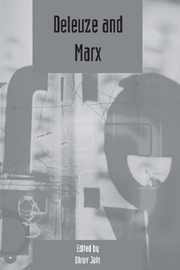Book contents
After Utopia: Three Post-Personal Subjects Consider the Possibilities
from Review Essay
Published online by Cambridge University Press: 12 September 2012
Summary
William E. Connolly (2008) Capitalism and Christianity, American Style, Durham and London: Duke University Press.
Alexander García Düttmann (2007) Philosophy of Exaggeration, trans. James Phillips, London: Continuum.
Adrian Parr (2008) Deleuze and Memorial Culture: Desire, Singular Memory, and the Politics of Trauma, Edinburgh: Edinburgh University Press.
Not the least of the many challenges involved in engaging with Deleuzian thought is the problem of writing about it without re-inscribing the same positivistic model that Deleuze so inimitably subverts. If difference itself grounds a virtual actuality that is also characterised by multiplicity, univocity and pure immanence, then a merely narrative account of our epistemological situation begins to seem like folly, a reductive process that drags Deleuze to a standstill in order to take a snapshot of whatever concept is most relevant to the moment. Surely there must be a better way. But even the most sophisticated approaches can be imprisoned by the linear nature of language or the symbolic order; perhaps this is part of what informed Deleuze's well-known remark to Claire Parnet, that in philosophy ‘the aim is not to answer questions, it's to get out, to get out of it’ (Deleuze and Parnet 2002: 1). The task then becomes, as Claire Colebrook and others have pointed out, to think transitively: how might it be possible to think actuality, think immanence, think univocity, think desire, think language itself?
These questions imply metaphysical hunger of a sort with which theoretical discourse has been manifestly uncomfortable for several decades.
- Type
- Chapter
- Information
- Deleuze and MarxDeleuze Studies 2009 (Supplement), pp. 138 - 144Publisher: Edinburgh University PressPrint publication year: 2010



